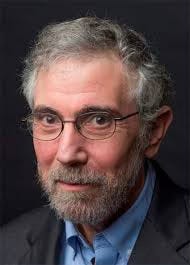Paul Krugman's Last Column? On No-o-o!
From the moment his first columns appeared until now I always looked to Paul Krugman to calmly and rationally shed light on a subject with a minimum of snark and a maximum of insight
I’ve always loved reading the newspaper from the time I delivered the Tulsa Tribune in 4th through 6th grade through now when I get at least four newspapers and three daily newsletters and periodic blog postings in my inbox every morning—- after I doom scroll on my phone. During those 65+ years of newspaper reading, the NY Times’ Paul Krugman was the only columnist I read regularly and agreed with 99% of the time. From the time I began reading his column in 2000 until now I withheld the formulation of any opinion on a topic until I read Dr. Krugman’s analysis. He would often caution readers to withhold judgment until all the evidence was in and unfailingly practiced that kind of caution when he rendered judgment on any politician, political situation, economic development, or event.
If you’ve never read Paul Krugman’s column, his final one will give you a sense of his levelheadedness and insight. His overarching theme of his valedictory essay contrasting the world view of 2000 with today’s perspective is this:
What strikes me, looking back, is how optimistic many people, both here and in much of the Western world, were back then and the extent to which that optimism has been replaced by anger and resentment. And I’m not just talking about members of the working class who feel betrayed by elites; some of the angriest, most resentful people in America right now — people who seem very likely to have a lot of influence with the incoming Trump administration — are billionaires who don’t feel sufficiently admired.
In explaining today’s resentment, he opens by offering some insights about the 2000 election when “Americans took peace and prosperity for granted, so they voted for the guy who seemed as if he’d be more fun to hang out with” and the decisions made during his eight years began the “…collapse of trust in elites” whereby “The public no longer has faith that the people running things know what they’re doing, or that we can assume that they’re being honest.” He recalled that when he and a small group of like-minded pundits questioned the evidence supporting the Bush administration’s decision to invade Iraq that he “received a lot of pushback from people refusing to believe that an American president would do such a thing.” He concludes that paragraph with this rhetorical question: “Who would say that now?”
He reviews some of the other questionable actions that politicians took in subsequent years and then returns to his premise that it is billionaires who are most resentful of how things are today. He contends that the roots of the rage date back to then President Obama’s administration’s suggestion that Wall Street might have been partly to blame for the economic disaster in 2008, noting that the billionaires never showed any contrition for their responsibility or appreciation for the government’s bailout for their poor decision. I’m going to let Dr. Krugman speak for himself in the concluding three paragraphs, with my highlights:
These days there has been a lot of discussion of the hard right turn of some tech billionaires, from Elon Musk on down. I’d argue that we shouldn’t overthink it, and we especially shouldn’t try to say that this is somehow the fault of politically correct liberals. Basically it comes down to the pettiness of plutocrats who used to bask in public approval and are now discovering that all the money in the world can’t buy you love.
So is there a way out of the grim place we’re in? What I believe is that while resentment can put bad people in power, in the long run it can’t keep them there. At some point the public will realize that most politicians railing against elites actually are elites in every sense that matters and start to hold them accountable for their failure to deliver on their promises. And at that point the public may be willing to listen to people who don’t try to argue from authority, don’t make false promises, but do try to tell the truth as best they can.
We may never recover the kind of faith in our leaders — belief that people in power generally tell the truth and know what they’re doing — that we used to have. Nor should we. But if we stand up to the kakistocracy — rule by the worst — that’s emerging as we speak, we may eventually find our way back to a better world.
The lessons in these last three paragraphs from Krugman’s last column offer a good example of his reasoned optimism: his belief that we shouldn’t agree with conventional wisdom (i.e. the resentment of voters “is the fault of politically correct liberals”), the voters who govern in a democracy will occasionally make errors of judgment about the people they elected (i.e. resentment can put bad people in power) but that the errors can and will be corrected over time once their mistake is evident they begin to listen to reason, and they push back. And one phrase among those highlighted perfectly captures Paul Krugman’s greatest quality: he always tried to tell the truth as best he could and… if he screwed up, which he rarely did over this 24 years of writing, he owned the mistake. If only our political leaders did the same.


